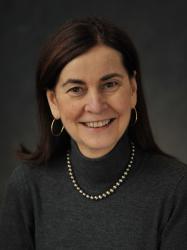Susan Armstrong-Reid

Education
Ph.D. University of Toronto, 1982
M.A. University of Toronto, 1977
B.A. University of Toronto, 1975
Professional
Adjunct Faculty, Department of History
University of Guelph, 2012-2026
American Association for the History of Nursing, Director and Chair of the Research Grant Review Committee, 2022-2026
Recent Honours and Awards
American Association for the History of Nursing, Lavinia Dock Research Award, 2018
American Association for the History of Nursing, H-15 Research Grant, 2016
Lillian Sholtis Brunner Fellowship, Barbara Bates Centre for the History of Nursing, University of Pennsylvania, 2012-2013
Research
My research give voices to women’s vital contribution to global health and humanitarianism that has been marginalized in the gendered dominant narrative. My work pays particular attention to nursing’s role in the troubled history of Western-driven humanitarianism. As nurses carved out personal and professional space within the gendered global healthcare landscape, they acted as agents of change even as they were profoundly altered by their cross-cultural experiences. The resulting ethical, political, and professional tensions, recovered through nurses’ narratives from the field, weave across my scholarly publishing to provide a more textured understanding of nursing’s past, present, and future direction. Like other Western historians, I grapple with my positionality of speaking up for Indigenous nurses’ agency and resistance but not speaking for them.
My journey to push the boundaries of the scholarly conversations across disciplines continues. My latest book, Behead and Cure: Walking the Ethical Tightrope of Humanitarian Work in the Vietnam War. Behead and Cure is not a traditional history of the Vietnam War. This book unpacks the ethics of humanitarian action. Its seven case studies, examining civilian medical teams’ lived experiences, expose the gaps in the historiography concentrated on the American experience and male combat. Their criticism of how aid was delivered during the war help contextualize the current debate to the ethics of remaining neutral in war; the efficiency humanitarian aid as a counterinsurgency strategy, and the demand to decolonize and Indigenize the humanitarian system.
My research complemented my teaching in the University of Guelph FYS seminars. My courses examined humanitarian crisis abroad and with the Indigenous community here at home, especially as it relates to children’s rights. Young people’ advocacy to change their living conditions or receive equitable treatment provided the central focus of inquiry for these courses. I continue to welcome students, who want to undertake research on women’s roles in global health or humanitarian work through the independent studies courses offered by the Department to senior history students.
Publications
Books:
Behead and Cure: Humanitarian Work in the Vietnam War
https://www.mqup.ca/behead-and-cure-products-9780228025559.php
The China Gadabouts: The New Frontiers of Humanitarian Nursing, 1941-1951 (University of British Columbia Press, 2017).
https://www.ubcpress.ca/china-gadabouts
Lyle Creelman: The Frontiers of Global Nursing (University of Toronto Press, 2014).
https://utorontopress.com/ca/catalogsearch/result/?q=Lyle+Creelamn
with David Murray, Armies of Peace: Canada and the UNRRA Years (University of Toronto Press, 2008).
https://utorontopress.com/ca/catalogsearch/result/?q=Armies++of+Peace
Chapters in books:
Susan Armstrong-Reid, “The UNRRA Nursing Brigade.” in Christine Hallet, The History of Nursing: Major Themes in Health and Social Welfare. (London, Routledge: 2015)
Susan Armstrong-Reid, “Two China gadabouts: Guerrilla nursing with the Friends' Ambulance Unit, 1946-8” in Helen Sweet, Sue Hawkins, eds. Colonial Caring: A History of Colonial and Post-Colonial Nursing. (University of Manchester Press: 2015.)
Articles:
with David Murray, “Canada and UNRRA,” Canada’s History Magazine (Winter 2012).
“Soldiers of Peace: The UNRRA Nursing Brigade,” Canadian Bulletin of Medical History / Bulletin canadien d'histoire 27, no. 1 (2010).
“Soldiers of Peace in the China Convoy: Edward Abbott and Francis Starr,” Canadian Quaker History Journal 72 (2007).
